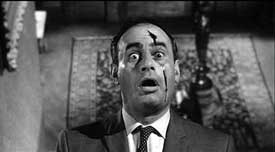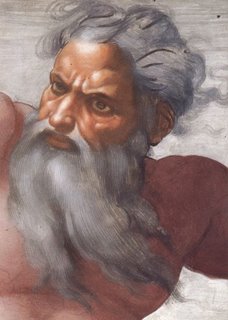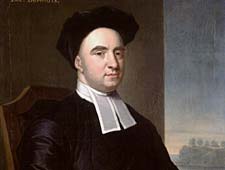The Death of God... Again
 It seems that I've been "quoting-out" quite a bit lately. Oh well. I don't have much to say about the following passage, except, pass the antacids please! In Luhmann Explained, Hans-Georg Moeller writes,
It seems that I've been "quoting-out" quite a bit lately. Oh well. I don't have much to say about the following passage, except, pass the antacids please! In Luhmann Explained, Hans-Georg Moeller writes,The theory of autopoiesis and operational closure-- and this is true for both its biological and sociological applications --breaks with the notion of a common reality that is somehow 'represented' within all systems or elements that take part in reality. According to systems theory, systems exist by way of operational closure and this means that they each construct themselves and their own realities. How a system is real depends on its own self-production. By constructing itself as a system, a system also constructs its understanding of the environment. And thus a systematic world cannot suppose any singular, common environment for all systems that can somehow be 'represented' within any system. Every system exists by differentiation and thus is different from other systems and has a different environment. Reality becomes a multitude of system-environment constructions that are in each case unique. (16)
Although Moeller doesn't situate it in these terms, this is one of the finest articulations of the implications that fo llow from the death of God or the non-existence of the big Other that I've come across. If we consider the ontological and epistemological function of God throughout the history of philosophy, then it is clear that the God-function serves to establish the identity of the object, along with the identity of the subject, explaining how it is possible for multiple perspectives to converge on one and the same object and how error is not possible. My students like to ask how someone can be mistaken about the nature of justice if people have different beliefs about justice. That is, they collapse the distinction between justice as such and one's judgments about justice, holding that it is the belief that makes something what it is (and in this they're good postmoderns). Yet if one can be mistaken in adopting the geocentric hypothesis or the thesis that the world is flat, then this is because the world itself is not flat or because the planets themselves do not revolve around the sun. The same would hold true for things such as justice. This was the Platonic dream and one major motivation for introducing the theory of the forms. The forms introduce an object corresponding to what can't be empirically seen, but which can be intellectually grasped (and are thus akin to mathematical entities). Under the classical view, it is the object that decides truth. Yet this presupposes a world where identity can be established, which, in turn, requires a God-function. Deleuze analyzes these structures with beautiful precision in his analysis of good and common sense in Difference and Repetition, and his analysis of the Other-structure.
llow from the death of God or the non-existence of the big Other that I've come across. If we consider the ontological and epistemological function of God throughout the history of philosophy, then it is clear that the God-function serves to establish the identity of the object, along with the identity of the subject, explaining how it is possible for multiple perspectives to converge on one and the same object and how error is not possible. My students like to ask how someone can be mistaken about the nature of justice if people have different beliefs about justice. That is, they collapse the distinction between justice as such and one's judgments about justice, holding that it is the belief that makes something what it is (and in this they're good postmoderns). Yet if one can be mistaken in adopting the geocentric hypothesis or the thesis that the world is flat, then this is because the world itself is not flat or because the planets themselves do not revolve around the sun. The same would hold true for things such as justice. This was the Platonic dream and one major motivation for introducing the theory of the forms. The forms introduce an object corresponding to what can't be empirically seen, but which can be intellectually grasped (and are thus akin to mathematical entities). Under the classical view, it is the object that decides truth. Yet this presupposes a world where identity can be established, which, in turn, requires a God-function. Deleuze analyzes these structures with beautiful precision in his analysis of good and common sense in Difference and Repetition, and his analysis of the Other-structure.
Thus, for Descartes, God is what guarantees the truth of clear and disti nct ideas. Similarly, in the case of Berkeley, Berkeley is able to escape the solipsism suggested by his thesis that esse est percipi or that being is perception, by arguing that God perceives beings when we're not in their presence, thereby insuring that the perception of all creatures converges on one and the same self-identical object and that these objects continue to exist when we're not in their presence. And yet again, Hegel saves being from being swallowed in the mad dance of difference that he had discovered, by conceiving all of these differences converging in a totality or whole that he called God, Spirit, or the notion. Where the God-function collapses, this primacy of identity can no longer be asserted. Rather, being becomes pure multiplicity.
nct ideas. Similarly, in the case of Berkeley, Berkeley is able to escape the solipsism suggested by his thesis that esse est percipi or that being is perception, by arguing that God perceives beings when we're not in their presence, thereby insuring that the perception of all creatures converges on one and the same self-identical object and that these objects continue to exist when we're not in their presence. And yet again, Hegel saves being from being swallowed in the mad dance of difference that he had discovered, by conceiving all of these differences converging in a totality or whole that he called God, Spirit, or the notion. Where the God-function collapses, this primacy of identity can no longer be asserted. Rather, being becomes pure multiplicity.
It is this, I think, that defines the knot I was despairing over in my diary on philosophical despair. Where the wor ld is shattered in this way-- indeed, Lacan dramatically claims that "the world does not exist" in Seminar XX --concepts such as rationality, reason, truth, knowledge and so on decisively change. Moreover, the very idea of communication or rational discourse is radically transformed. All of these philosophical concepts rely on identity in some form or another, but where identity is absent they collapse. Rather, we only have various systems constructing their worlds, without even communicating with one another. Many have seen this as cause for celebration, singing hymns to pluralism and celebrating difference. However, it seems to me that this view itself presupposes a view from nowhere, or the ability to survey all the differences. Moreover, I wonder if people are really aware of what they're saying when they say such things, and whether they live in the world in a way that accords with this thesis. Rather, I think Badiou has posed the truly burning question: Given that being is multiplicity, that being is difference without One, then how is the Same possible?
ld is shattered in this way-- indeed, Lacan dramatically claims that "the world does not exist" in Seminar XX --concepts such as rationality, reason, truth, knowledge and so on decisively change. Moreover, the very idea of communication or rational discourse is radically transformed. All of these philosophical concepts rely on identity in some form or another, but where identity is absent they collapse. Rather, we only have various systems constructing their worlds, without even communicating with one another. Many have seen this as cause for celebration, singing hymns to pluralism and celebrating difference. However, it seems to me that this view itself presupposes a view from nowhere, or the ability to survey all the differences. Moreover, I wonder if people are really aware of what they're saying when they say such things, and whether they live in the world in a way that accords with this thesis. Rather, I think Badiou has posed the truly burning question: Given that being is multiplicity, that being is difference without One, then how is the Same possible?

6 Comments:
This is somewhat off topic, but I was wondering if you had any recommendations for books on systems theory? I've read some Luhmann, but I'm not sure where to turn from there. The Luhmann Explained book looks good though, judging by it's Amazon blurb.
I'm afraid Moeller's book is about as good as it gets as far as general introductions to Luhmann go. If you're looking for other books on Systems Theory, you might consult Bertalanffy's _General Systems Theory_. If you find a good book, please let me know.
As far as Luhmann himself goes, _Social Systems_ is the place to go; however this book is extremely difficult. It took me a number of tries before I could finally get through it (however, the first chapter alone makes the book worthwhile). As I said in another diary, _The Reality of the Mass Media_ is, I think, the most accessible introduction to his work. _Theories of Distinction_ contains a number of amazing essays, especially the essays in Part 2. Sometimes I find Luhmann uneven, but these three books are very solid.
Try Anthony Wilden's _System and Structure: Essays in Communication and Exchange_ (classic from the 1960s ;) Used PAPERBACK copies are available for about $25. His chapter on Lacan, the first result from a Google search on his name, is available online. Also good is Robert Rosen's _Life Itself_ which elaborates the sort of category theory that Sinthome was discussing recently.
Mark, Thanks for the references. I knew that Wilden had mapped the relationship between Lacan and cybernetics in his commentary on the Rome Discourse, but I was unaware that he'd written a more sustained study of systems theory. This is how I tend to approach Lacan myself, seeing psychoanalysis not as a psychology, but as a theory of structural coupling between the operationally closed systems of body, mind, and communications/social systems.
Hey thanks Mark and Levi for the suggestions - they will keep me busy for a bit. If I should find any other decent resources, I'll post them up and let you know.
Post a Comment
<< Home